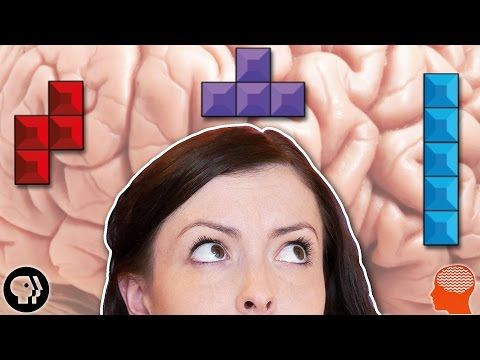Tetris May Make The Brain More Efficient, Act As 'Cognitive Vaccine' For Mental Health Disorders

Studies have shown playing the classic video game Tetris can benefit lazy eye and hunger — but can it also benefit your brain?
It’s an idea BrainCraft host Vanessa Hill and PBS Game/Show host Jamin Warren tackle in their latest video. For one, a study found playing Tetris for an hour and a half a week for three months thickened player’s cerebral cortex; other parts of the brain, too, became more efficient. Hill, however, added changes in brain structure doesn’t necessarily mean changes in brain function. These changes could also occur if someone plays, say, Mario Kart for the same amount of time.
A separate study showed playing Tetris can reduce the amount of flashbacks people suffering from post-traumatic stress disorder experience. After participants were shown traumatic film clips, half of them were assigned to play Tetris while the other half sat quietly. Researchers monitored participants' flashbacks for a week and found those who did not play Tetris had twice as many flashbacks compared to those who did play, suggesting the game acts as a “cognitive vaccine.”
Of course, Tetris can also be addictive. Warren explained it naturally appeals to a person’s natural desire to organize, allowing the player to think with the game, which makes it easier to be consumed by it during “non-gaming hours.”
For now, both Hill and Warren conclude, science can't for sure say the game is good or bad — so feel free to keep playing in moderation.
Published by Medicaldaily.com



























